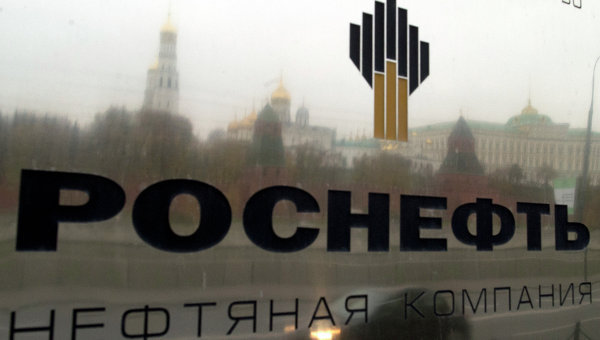MOSCOW, October 2 (RAPSI, Vladimir Yaduta) – Russia’s OAO Samaraneftegaz, that is now a subsidiary of state-run Rosneft oil company, secures support of Russian authorities struggling against a New York court ruling ordering that it pay Yukos Capital S.a.r.l. $185.9 million.
The dispute arose from a July 2004 loan agreement, under which the Luxembourg company Yukos Capital, controlled by former Yukos managers, provided Samaraneftegaz, a subsidiary of Yukos until 2007, with loans totaling 2,4 billion rubles (about $69 million).
Yukos Capital initiated dispute in January 2006 arbitration proceedings in the International Court of Arbitration of the International Chamber of Commerce (ICC) against Samaraneftegaz to resolve the loan. Eventually, the dispute fell in the favor of Yukos Capital.
When Yukos Capital sought enforcement of the award in Russia in 2010, a Samara commercial court refused, holding that Samaraneftegaz had not been notified of the progress of the arbitration proceedings after March 2006. Furthermore, Russian court found that enforcement of the award would violate Russian public policy.
In 2012, a Samara court invalidated the loans, finding that they had been “financed from funds taken away earlier from OJSC Samaraneftegaz in the course of implementation of transfer pricing mechanisms.”
Yukos Capital filed a lawsuit in a federal district court in New York seeking enforcement of an arbitration award it had earlier won in the ICC. The court entered a $185.9 million final judgment in favor of Yukos Capital S.a.r.l. in August 2013. Rosneft subsidiary appealed the ruling, filed an opinion of the Russian Foreign Ministry and a notification of the Russian General Prosecutor's Office obtained by RAPSI.
Russian General Prosecutors' Office claims that employees of Samaraneftegaz face criminal charges if a ruling of a foreign court which is contrary to a decision of a Russian court would be enforced.
“If an employee of Samaraneftegaz proceeds with the performance of the foreign courts' judicial acts that are contrary to the decisions issued by Russian courts, a question will arise as to criminal liability of such employee under article 315 of the Criminal Code of the Russian Federation (failure to comply with a sentence, decision or another judicial act of a court). Moreover, such person may potentially be subjected to a criminal liability under Article 160 of the Criminal Code of the Russian Federation (misappropriation and embezzlement), Article 174 of the Criminal Code of the Russian Federation (money-laundering) and Articles 201 - 204 Criminal Code of the Russian Federation (breach of duty of care owed to
a commercial entity),” the General Prosecutors' Office claims.
The Foreign Ministry also underlines that the application of Yukos Capital for recognition and enforcement of the ICC award was dismissed in 2011 by the Russian court which later provided its clarification of the ruling asked for by Samaraneftegaz.
“Judgments and decisions of public authorities of foreign states, including courts, do not and cannot as such operate in the territory of Russia. Performance thereof by Russian entities is solely possible with consent of the Russian Federation definitely expressed by its competent bodies (e.g. on the basis of an international treaty that has come into effect). Meanwhile, there is no international treaty between the Russian Federation and the United States providing for mutual recognition and enforcement of judgments in civil cases,” the Foreign Ministry’s opinion reads.
“Taking into account the known facts of the case, we think that the abovementioned decisions of the US courts relating to activities of Russian legal entities in the territory of the Russian Federation are of "extraterritorial" nature, constitute interference with the exercise of sovereign prerogatives by the Russian Federation, and therefore contradict the generally recognized rules and principles of international law that, pursuant to Art. 15(4) of the Constitution of the Russian Federation constitute an integral part of its legal system. In view of the foregoing, actions of the Russian legal entity on the performance of judicial acts of the US District Court for the Southern District of New York would contradict the applicable rules of Russian legislation and international law,” the Foreign Ministry claims.



